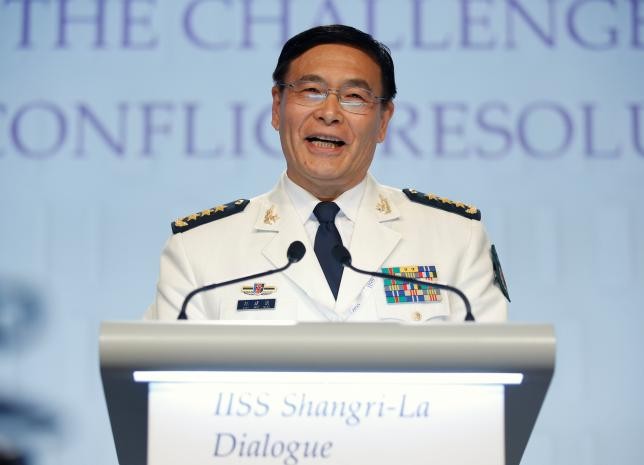China has restated its sovereignty over the disputed islands in the South China Sea said it "has no fear of trouble" as it repulsed pressure from the U.S. to halt activities in the area, Reuters reported.
Chinese Admiral Sun Jianguo made the pronouncement on Sunday, June 5, during the Shangri-La Dialogue in Singapore, where he said that China will not be intimidated even with the pending ruling of the international court over its claims in the vital sea trade route.
"We do not make trouble, but we have no fear of trouble," Sun said during the three-day dialogue attended by more than 600 security, military and government delegates from different countries.
"China will not bear the consequences, nor will it allow any infringement on its sovereignty and security interest, or stay indifferent to some countries creating chaos in the South China Sea," the admiral added.
The United States, through President Barack Obama's "pivot" strategy, has increased its presence in the Asia Pacific region, while China flexed greater economic, political and military force in the region.
The two countries have blamed each other of militarizing the region as China reclaimed land and put up structures on disputed areas, while the U.S. frequently patrolled the area.
Defense Secretary Ash Carter and top U.S. officials have warned China on Saturday, June 4, that it may be at risk of being isolated internationally as they vowed to ensure the security in the region.
Sun, however, dismissed the U.S. view, including concerns from countries such as India, Japan, Vietnam and South Korea, as he said that many of the Asian countries at the dialogue were "warmer" and "friendlier" to China now that they were about a year ago. Compared with 13 in 2015, China has entered into 17 bilateral meetings this year.
"We were not isolated in the past, we are not isolated now and we will not be isolated in the future," Sun said. "Actually I am worried that some people and countries are still looking at China with the Cold War mentality and prejudice. They may build a wall in their minds and end up isolating themselves."
U.S. Secretary of State John Kerry has called on China on Sunday not to implement an air defense identification zone (ADIZ) over the South China Sea, like what it did in East China Sea in 2013.
The establishment of a ADIZ would be "a provocative and destabilizing act," which would cast doubt on China's ability to resolve the dispute diplomatically, Kerry said.
The South China Sea issue was the major point of discussion in the talks, as well as Chinese trade policy and the difficulty that foreign businesses face in conducting business in China.
Sun added that China does not recognize the authority of the international tribunal in The Hague as well its upcoming decision.
As China has opened its door to incoming Philippine President Rodrigo Duterte, Sun said Beijing wants to resolve the conflict with the Philippines through bilateral talks.
According to Duterte, the Philippines will pursue its rights over the disputed Scarborough Shoal, which China claimed in 2012.
Other countries such as Brunei, Malaysia, Taiwan and Vietnam have claims over the disputed waters, but China asserts its rights over the entire sea.
"China has the patience and wisdom to settle any disputes through dialogue. We also believe the related countries have the wisdom and patience to make peace," Sun said. "I've always believed that shaking hands is better than clenching fists."
If not resolved, the tensions could result in an arms race with "disastrous and unpredictable consequences," Vietnam's Deputy Defense Minister Nguyen Chi Vinh said. The United States arms embargo over Vietnam was lifted last month.
During the summit, several countries stressed that the freedom of navigation and overflight in the waters is important as trade worth trillions of dollars passed through the disputed waters every year.
Sun, however, dismissed these concerns.
"If there is any restriction . . . it will definitely not be China's fault. If you don't believe it, just wait and see," he said.



























